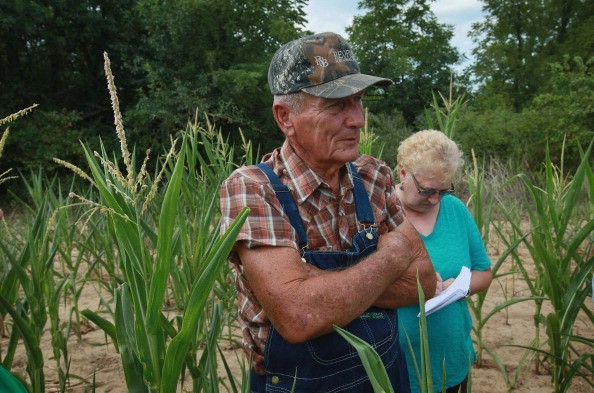USDA to Provide Another $14 Billion to Ailing Farmers
The U.S. Department of Agriculture (USDA) said it would send up to $14 billion in aid to farmers who continue to face dramatic losses in revenue and market disruptions because of the COVID-19 pandemic.
According to Associated Press, the USDA released the details of its plan Friday, saying the additional money will compensate the agricultural producers for the difficulties they have experienced selling their crops, milk, and meat because of the pandemic.
The agency further noted that it will provide "financial assistance that gives producers the ability to absorb increased marketing costs associated with the COVID-19 pandemic."
President Donald Trump first mentioned the financial aid in a speech Thursday night in Wisconsin, a state considered vital for his chances to win a second term. The additional payments indicate the importance of farmers as a voting block to the Republican President's reelection.
Trump addressed the farmers in Wisconsin directly by saying, "you gotta love Trump" and promised favorable trade, regulatory changes, and tax cuts.
"Now we have to get four more years to cement it and do additional things," Trump added.

In a statement on Friday, Agriculture Secretary Sonny Perdue said America's agriculture communities are resilient, but still face many challenges due to the COVID-19 pandemic.
"We listened to the feedback received from farmers, ranchers, and agricultural organizations about the impact of the pandemic on our nations' farms and ranches, and we developed a program to meet better the needs of those impacted," Perdue noted.
The pandemic has created different problems for farmers, as per AP News. The availability of labor dropped, resulting in reduced crop and livestock production as well as processing capacity in meatpacking plants and other facilities.
These issues have pushed prices that farmers receive for commodities lower. The demand for some products has also decreased as fewer people have been eating out. Farm households also suffered from loss of income from off-farm job, which they use to fund farm production needs, family expenses, and payments on farm business debt.
The USDA aid program places a payment cap of $250,000 per person or farm entity for all commodities combined. Gross income cannot be more than $900,000, unless at least 75 percent or more of their income is derived from farming, ranching, or forestry-related activities.
Producers must also be in compliance with Highly Erodible Land and Wetland Conservation provisions. Farmers can start signing up for the money on Monday.
Agriculture groups applauded the financial aid, most of which will come in direct payments for crops that meet a specified threshold of price decline. They include rice, corn, wheat, soybeans, alfalfa, and some cotton, among others. Chicken, milk, eggs, beef cattle, lambs, and pigs will also be covered.
This is not the first time that the Trump administration and the Agriculture Department will release a financial aid to the farmers. It can be remembered that the agency released an amount of $19 billion aid in April to the farmers and ranch owners, most of which was in the form of direct farm payments.
It followed the $28 billion the federal government gave farmers to compensate for two years of disruptions caused by Trump's tariff battles with trading partners.
The way the previous aid was divided was criticized by some crop and livestock groups, and National Farmers Union President Rob Larew stressed that farmers want the money distributed fairly.
"The first round of funding, though greatly appreciated, was not without its flaws. Not only did it favor large farms over smaller ones, but it also sent millions of dollars to foreign-owned operations and excluded some farmers entirely," Larew said.
Check these out:
More Stimulus Is Needed to Recover From COVID-19 Recession, Bank of America CEO Says
Next Stimulus Payments: Who Could be Eligible Dependents and their Importance
Over 70% Latino Households Report Financial Difficulties Amid COVID-19 Pandemic
Subscribe to Latin Post!
Sign up for our free newsletter for the Latest coverage!
© 2026 Latin Post. All rights reserved. Do not reproduce without permission.















